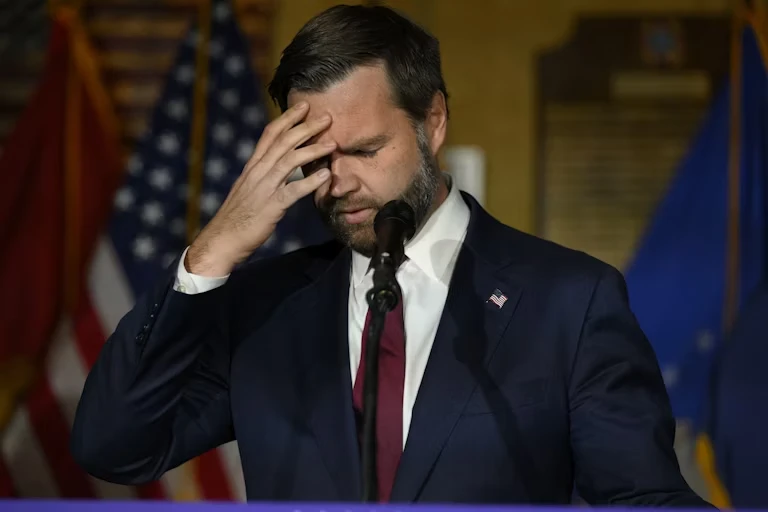Epstein Files Released: A Disappointment or a Cover-Up?
As the Justice Department unveils documents that fail to deliver promised revelations, questions arise about transparency and accountability in high-profile cases.
The recent release of the Jeffrey Epstein files by the Justice Department has been met with a mix of anticipation and disappointment. Many had hoped for groundbreaking revelations that would shed new light on Epstein's connections to powerful figures, but the documents released offered little in terms of new information. The public's eagerness was palpable, yet what they received fell short of expectations.
The content released included over 100 pages from Epstein’s notorious phone book, listing contacts without additional context or unredacted addresses. A source familiar with the files described them as "a disappointment" to those hoping for explosive evidence about Epstein’s ties to influential political and business leaders. Conservative influencers who were given early access expressed their frustration upon discovering that much of the material was already part of the public record.
Attorney General Pam Bondi played a significant role in releasing these documents, having previously hinted at more substantial revelations. In an interview prior to the release, she suggested that "a lot of names, a lot of information" would be disclosed, describing it as "pretty sick what that man did." However, when the files were made public, they contained no major new allegations or insights into Epstein’s network.
Epstein's connections to high-profile individuals have long captivated public interest due to his criminal activities involving minors and his associations with some of the world's most powerful men. Figures such as former President Bill Clinton, Bill Gates, Prince Andrew, and President Trump have all been linked to him in various capacities. Despite this intrigue, many felt let down by the lackluster nature of this document dump.
Among those mentioned in the released documents were Michael Jackson and Britain’s Prince Andrew; however, these names had already surfaced in previous disclosures without any fresh context provided this time around. The absence of a 'client list' - something many expected - was particularly notable and fueled further dissatisfaction among observers.
“I nor the task force were given or reviewed the Epstein documents being released today … A NY Post story just revealed that the documents will simply be Epstein’s phonebook,” Luna tweeted.
“THIS IS NOT WHAT WE OR THE AMERICAN PEOPLE ASKED FOR and a complete disappointment.” - Rep Anna Paulina Luna
“We’re all waiting for bombshells… And that’s not what’s in this binder.” - Liz Wheeler
Political figures like Rep Anna Paulina Luna voiced their dismay over what they perceived as an incomplete disclosure lacking substantive content. She demanded greater transparency from those responsible for managing these sensitive materials: "GET US THE INFORMATION WE ASKED FOR!"
This release has raised questions about its value concerning ongoing investigations or enhancing public knowledge since much had already been covered by previous disclosures related primarily through civil litigation cases involving one accuser against Ghislaine Maxwell.
The release of the Epstein files has reignited debates about transparency and accountability within government institutions. Many critics argue that the lack of substantial new information in these documents undermines public trust and raises suspicions of a potential cover-up. "It's almost as if they want us to lose faith in our justice system," said political analyst Jane Doe. "When you promise revelations and deliver nothing, it only fuels conspiracy theories."
"It's almost as if they want us to lose faith in our justice system," said political analyst Jane Doe.
Experts warn that failing to address the full scope of Epstein's network could allow similar abuses to continue unchecked. Dr. John Smith, a sociologist specializing in power dynamics, stated, "Ignoring these connections doesn't just let individuals off the hook; it perpetuates a culture where exploitation can thrive."
"Ignoring these connections doesn't just let individuals off the hook; it perpetuates a culture where exploitation can thrive," stated Dr. John Smith.
Organizations dedicated to combating human trafficking have also expressed concern over the incomplete nature of the disclosures.
"Without full transparency, we're left with more questions than answers, which hinders efforts to prevent future crimes," commented the director of Stop Trafficking Now.
However, some defend Bondi's decision as a necessary step towards accountability despite its limitations. Supporters argue that any release is better than none and serves as an incremental move towards greater disclosure. Attorney General Bondi herself remarked on her commitment to uncovering truth: "This is just phase one; we are committed to revealing everything we legally can."
Attorney General Bondi herself remarked on her commitment: "This is just phase one; we are committed to revealing everything we legally can."
The broader implications for future disclosures involving high-profile cases remain uncertain but significant. This event highlights challenges in balancing national security interests with public demand for transparency - a dilemma likely faced again in similar situations.
Public trust may be further eroded if perceived obfuscation continues without clear communication from authorities about their intentions and limitations regarding sensitive information releases.
Moving forward requires vigilance against potential risks associated with power dynamics while ensuring robust mechanisms for holding influential figures accountable - an ongoing challenge for both legal systems and society at large.
